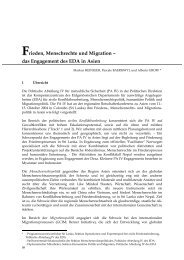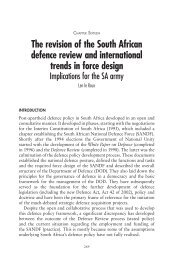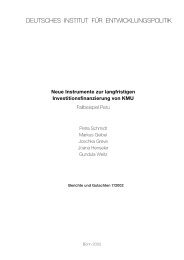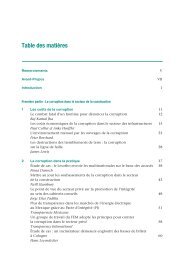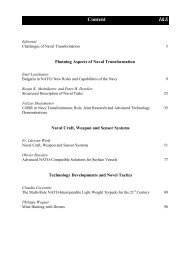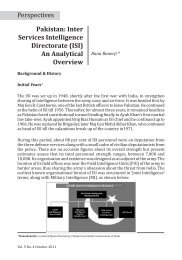Andreas Stamm Eva Dantas Doris Fischer Sunayana ... - ETH Zürich
Andreas Stamm Eva Dantas Doris Fischer Sunayana ... - ETH Zürich
Andreas Stamm Eva Dantas Doris Fischer Sunayana ... - ETH Zürich
Create successful ePaper yourself
Turn your PDF publications into a flip-book with our unique Google optimized e-Paper software.
26<br />
<strong>Andreas</strong> <strong>Stamm</strong> et al.<br />
technical systems evolve towards greater sustainability (Berkhout 2002; Smith 2003;<br />
Geels / Elzen 2004). This shift has been driven by the recognition that a narrow focus on<br />
innovation of single technologies at the firm level neglects important changes at the institutional<br />
and policy level that are intrinsically associated with environmental innovation<br />
and a path towards sustainability. Consequently, in the context of this new analytical focus,<br />
increased attention is given to changes in broad socio-technical practices and technical<br />
and institutional systems that contribute to sustainable development.<br />
A socio-technical system has been defined as “a cluster of elements, including technology,<br />
regulations, user practices and markets, cultural meanings, infrastructure, maintenance<br />
networks and supply networks” (Geels / Elzen 2004, 3). These socio-technical systems<br />
involve a multitude of elements that are responsible for or involved in fulfilling specific<br />
societal functions such as transportation, energy provision, housing, health care and so on<br />
(Geels 2004a). The concept is broader than sectoral innovation system concepts, because<br />
it includes the user environment and consumption patterns as central dimensions of the<br />
system (Geels 2004b).<br />
System innovation refers to the transition from one socio-technical system to another,<br />
qualitatively different one, for instance, from horse-driven to automobile transport systems<br />
(Geels / Elzen 2004, 3). According to the proposed model, system transition has the following<br />
characteristics. It is:<br />
— multi-level, with changes occurring simultaneously at the level of ‘socio-technical<br />
landscapes’ (macro-level, encompassing broad political, economical, etc. trends),<br />
‘socio-technical regimes’ (meso-level) and ‘niches’ (micro-level);<br />
— multi-actor, involving multiple stakeholders; and<br />
— multi-factor, with changes driven not by a single factor such as technological change<br />
but by several interacting factors, such as behavioural, institutional and technological<br />
drivers (Elzen / Wieczorek 2005).<br />
System innovations are conceived as subjects of social experiments that can be promoted<br />
through sustainability niches that subsequently develop into new systems.<br />
“Finally, transitions require learning processes and policy pressure upon incumbents<br />
in order to transmit improved niche practices into the mainstream (socio-technical<br />
change.)” (Smith / Kern 2007, 6 f.).<br />
The transition discourse has received significant attention in sustainability science and<br />
also in policy making. For instance, the fourth Dutch environmental plan explicitly adopts<br />
this approach as the guiding principle to define, basically, future development trajectories<br />
in energy supply. However, as Kern (2006) points out, five years after its adoption the<br />
“energy transition” approach has not managed to significantly alter Dutch energy policy.<br />
Smith / Kern (2007, 18) come to a very sceptical conclusion regarding the impact that<br />
transition discourse has thus far had in practice:<br />
“The transitions discourse is failing to reinvigorate and radicalise ecological modernisation.<br />
As before, structural components diminish the storyline. Overriding imperatives<br />
around economic performance and international competitiveness, embodied<br />
within the more powerful policy-making institutions of government, continue to trim<br />
ecological modernisation into a series of incremental reforms”.<br />
German Development Institute / Deutsches Institut für Entwicklungspolitik (DIE)






